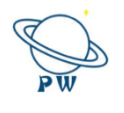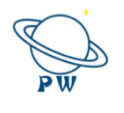Starter Feed Market to Reach USD 48.3 Billion by 2032, Driven by a 6.32% CAGR Growth
Research Reports
Oct 17, 2024
Starter Feed Market Overview
The starter feed market plays a pivotal role in modern livestock farming by providing young animals with the essential nutrition they need for healthy development. As the global demand for high-quality meat, dairy, and aquaculture products grows, the importance of starter feed continues to increase. This blog delves into the current landscape of the starter feed market, its key segments, and regional trends.
Starter Feed Market Size was valued at USD 27.6 Billion in 2023. The Starter Feed market industry is projected to grow from USD 29.59272 Billion in 2024 to USD 48.3 Billion by 2032, exhibiting a compound annual growth rate (CAGR) of 6.32% during the forecast period (2024 – 2032).
The starter feed market has witnessed significant growth in recent years due to the rising demand for high-quality animal products and the increasing focus on animal health. Starter feed is specifically formulated for young animals in the early stages of their life cycle, providing essential nutrients such as proteins, vitamins, minerals, and enzymes. These feeds are crucial for ensuring optimal growth, boosting immunity, and enhancing feed conversion efficiency.
Key Players :
Cargill, Inc. (US), Evonik Industries AG (Germany), Archer Daniels Midland Company (US), Purina Mills LLC, (US), Associated British Foods PLC (UK), Alltecht (US), Charoen Pokphand Foods PCL (Thailand), Nutreco N.V. (Netherlands), ACI Godrej Agrovet Private Ltd (India), Roquette Freres S.A. (France), Vimala Feeds Private Limited (India), C-Feed AS (Norway), CCPA GROUP (France), Land O’Lakes, Inc. (US), and Tyson Foods, Inc. (US)
Growth Drivers
- Increased Meat Consumption: The global rise in meat consumption, particularly poultry, pork, and fish, has driven the demand for quality starter feed. As the livestock industry strives to meet growing demands, there is a need to improve the health and growth of young animals from the very beginning.
- Animal Health and Welfare: Livestock producers are increasingly focused on improving the health and welfare of animals, with a particular emphasis on disease prevention and growth optimization. This is fostering demand for nutritionally balanced and medicated starter feeds.
- Technological Advancements: Innovations in feed formulations, including improved bioavailability of nutrients and enhanced feed efficiency, are propelling the market forward. Additionally, research in gut health and immunity in young animals has led to the development of more targeted feed products.
- Sustainability and Environmental Impact: Sustainability concerns in agriculture are influencing the production and consumption of feed products. Many starter feed manufacturers are focusing on reducing environmental impact by optimizing feed formulations to minimize waste and increase nutrient absorption.
Click Here to Get Sample Premium Report:Â https://www.marketresearchfuture.com/sample_request/5358Â
Challenges
Despite its growth, the starter feed market faces challenges such as fluctuating prices of raw materials, strict regulatory frameworks, and the need for region-specific formulations to meet the unique dietary needs of various livestock species. Additionally, growing consumer awareness of antibiotic use in livestock feed has created pressure for manufacturers to develop non-medicated alternatives.
Market Segmentation
The starter feed market can be broadly segmented by type, form, and livestock category. Each segment plays a crucial role in defining the overall market dynamics.
- By Type: Medicated vs. Non-Medicated Starter Feed
- Medicated Starter Feed: Medicated feed contains additives such as antibiotics, which help prevent diseases and infections in young animals. These feeds are commonly used in high-density farming environments where disease outbreaks can be costly. The medicated feed market remains strong, particularly in regions where livestock density is high and disease prevention is critical.
- Non-Medicated Starter Feed: With increasing concerns over antibiotic resistance and stricter regulations on antibiotic usage in animal feed, there is growing demand for non-medicated starter feed. These feeds often include alternatives such as probiotics, prebiotics, and plant-based ingredients that support gut health and immune function without the use of antibiotics.
- By Form: Pellets, Crumbles, and Others
- Pellets: Pelleted starter feed is the most popular form due to its ease of handling, reduced wastage, and uniform nutrient distribution. Pellets are particularly favored in large-scale livestock farming where feeding efficiency is crucial.
- Crumbles: Crumbled feed is often preferred for younger animals that are transitioning from mash to pellets. It offers a finer texture than pellets, making it easier for animals to consume during the early growth stages. Crumbles are commonly used in poultry and swine production.
- Others: Other forms of starter feed include mash and liquid feeds. Mash is typically used in smaller operations or for specific livestock species where feed form isn’t as critical. Liquid starter feed is used primarily in aquaculture to ensure proper nutrient absorption in aquatic species.
Browse In-depth Market Research Report:Â https://www.marketresearchfuture.com/reports/starter-feed-market-5358Â
- By Livestock: Ruminant, Poultry, Swine, Aquaculture, and Others
- Ruminant: Starter feed for ruminants (cattle, sheep, goats) is formulated to support rumen development in young animals. Early feed intake in ruminants is critical for ensuring healthy growth and improved milk or meat production later in life. This segment is witnessing steady growth due to the global rise in dairy and beef consumption.
- Poultry: Poultry starter feed is a crucial segment, particularly for broilers and layers. High-quality feed during the early stages ensures better weight gain, reduced mortality, and improved feed conversion ratios. The poultry industry’s rapid expansion, particularly in Asia and South America, is driving demand for poultry starter feed.
- Swine: Swine starter feed focuses on enhancing gut health and overall growth in piglets. Early weaning practices in the swine industry have created a need for highly digestible and nutrient-rich feed products. The growing global pork industry continues to fuel demand for this segment.
- Aquaculture: The aquaculture sector is one of the fastest-growing segments in the livestock industry. Starter feed for aquatic species like fish and shrimp is crucial for ensuring early growth and survival. The rise of sustainable fish farming practices is expected to boost demand for aquaculture starter feed.
- Others: This segment includes feed for niche livestock such as horses, rabbits, and small ruminants. While smaller in scale, demand for specialized feed products in this category is growing, particularly in regions where livestock diversification is prevalent.
Discover More Research Reports On Agriculture by Market Research Future:
Regional Analysis
The global starter feed market is highly diverse, with different regions exhibiting varying trends and preferences. Here’s an overview of the market on a regional basis:
- North America
North America holds a significant share of the global starter feed market due to the well-established livestock industry in the U.S. and Canada. The region’s strong focus on livestock health, welfare, and productivity, coupled with advanced farming practices, drives demand for high-quality starter feed products. Additionally, stringent regulations on antibiotic use have led to a surge in demand for non-medicated starter feeds in the region.
- Europe
Europe is another major player in the starter feed market, particularly in countries such as Germany, France, and the U.K. The European Union’s stringent regulations on the use of antibiotics in animal feed have encouraged the growth of the non-medicated segment. Additionally, the growing demand for organic meat and dairy products has spurred the development of natural and organic starter feeds.
- Asia-Pacific
The Asia-Pacific region represents the fastest-growing market for starter feed, driven by the rapid expansion of the livestock industry in countries such as China, India, and Vietnam. Rising meat consumption, increased disposable incomes, and growing awareness of animal health and nutrition are key factors driving market growth. The region’s aquaculture industry, in particular, is witnessing substantial growth, fueling demand for aquatic starter feeds.
Related Reports:
Crop Oil Concentrates Market Size was valued at USD 246.96 billion in 2023. Crop Oil Concentrates Market industry is anticipated to grow from USD 257.02 billion in 2024 to USD 391.95 billion by 2032, exhibiting a CAGR of 5.42% during the forecast period (2024-2032).Â
Humic-based Biostimulants Market Size was valued at USD 0.54 Billion in 2023. The humic-based biostimulants market industry is projected to grow from USD 0.59103 Billion in 2024 to USD 1.12 Billion by 2032, exhibiting a compound annual growth rate (CAGR) of 8.32 % during the forecast period (2024 – 2032).
Automated Irrigation Market Size was valued at USD 3.64 billion in 2021. projected to grow from USD 4.20 Billion in 2022 to USD 14.6 billion by 2030, exhibiting a compound annual growth rate (CAGR) of 16.87 % during the forecast period (2022 – 2030).
Transgenic Seeds Market Size was valued at USD 31.95 Billion in 2023. The transgenic seeds market industry is projected to grow from USD 35.784 Billion in 2024 to USD 79.03 Billion by 2032, exhibiting a compound annual growth rate (CAGR) of 10.41 % during the forecast period (2024 – 2032).
Animal Disinfectants Market Size was valued at USD 3.42 billion in 2023. The animal disinfectants market industry is projected to grow from USD 3.6594 Billion in 2024 to USD 5.88 billion by 2032, exhibiting a compound annual growth rate (CAGR) of 6.11 % during the forecast period (2024 – 2032).
Herbicide Safeners Market Size was valued at USD1.614 Billion in 2023. The herbicide safeners market industry is projected to grow from USD 1.736664 Billion in 2024 to USD 2.9 Billion by 2032, exhibiting a compound annual growth rate (CAGR) of 6.62% during the forecast period (2024 – 2032).Â
About Market Research Future:
At Market Research Future (MRFR), we enable our customers to unravel the complexity of various industries through our Cooked Research Report (CRR), Half-Cooked Research Reports (HCRR), and Raw Research Reports (3R), Continuous-Feed Research (CFR), and Market Research & Consulting Services.
MRFR team has a supreme objective to provide the optimum quality market research and intelligence services to our clients. Our market research studies by products, services, technologies, applications, end-users, and market players for global, regional, and country-level market segments, enable our clients to see more, know more, and do more, which helps to answer all their most important questions.
To stay updated with the technology and work process of the industry, MRFR often plans & conducts meetings with the industry experts and industrial visits for its research analyst members.
Â
Contact Information:
Contact Market Research Future Office No. 104, Pentagon 4 Magarpatta City, Hadapsar, Pune – 411013 Maharashtra, India Tel. (0) + 91 8411985042 / 020 640000195 Email: [email protected] Website: https://www.marketresearchfuture.com
Tags:
Research Newswire, English




